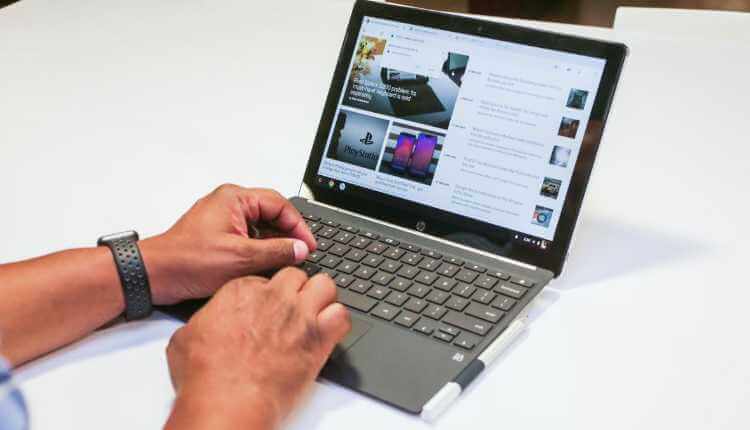Chromebooks are laptops that run on Chrome OS, which is a Linux-based operating system developed by Gooogle. What makes it so different from other Operating Systems like Windows or macOS is that it is heavily web-dependent. Using the cloud for storing most of your stuff lets the user compromise on expensive hardware that might otherwise be required. The main selling point of Chromebooks is Simplicity. Lesser hardware but offering snappy, efficient performance. The accounts on the device are linked to Google accounts. Chrome OS remembers the preferences of each user, and you could always switch to a different device and feel no different from the previous one just by signing in. By designing the Chromebook and investing in it, Google wanted to create a new standard, but this wasn’t a success. The Chromebook ended up as a niche product with low sales, and Google was compelled to sell them at a much lower price point than they anticipated.
Though the Chrome OS is called an Operating System, it is effectively just a portal to the web. The browser itself is the primary user interface with a few additions to the UI. Most applications and user data live in the cloud; this sort of dependency on the cloud requires a stable fast-enough internet connection, which is still not guaranteed in various parts of the world; this is one of the biggest issues with a Chromebook as laptops being portable devices, it can be difficult to find good internet while you are on the move.
Also, read — 10 Android and iOS Games that Couples can Virtually Play Together
Chromebooks have no built-in editors – photo, video, or audio. The only solution would be to rely on a web application or an Android-based alternative. Web applications often have limited capabilities and, again, requires a good internet connection. Newer Chromebooks have support for installing apps that are available on the Google PlayStore, but these apps may not necessarily be optimised to work on a Chromebook. Another issue is that most apps on the PlayStore have no support for mouse-keyboard interactions and so buying a Chromebook with a touch-screen might be needed. Since Chrome OS is a Linux-based certain Linux application could run on it, but this is still not a well-developed solution. So if you are someone who wants your OS to support editing tools like Photoshop or Premiere Pro, then Chrome OS will disappoint you.
As far as gaming is concerned, other than light web games available on the google web store, Chromebooks are not gaming devices. You could try games on the PlayStore, but most won’t provide keyboard support, and compatibility might be an issue. Steam is available on the Chromebook, and light games are made available. Even if future updates support higher-end games, running it will be nearly impossible due to hardware limitations. Chromebooks have no GPU acceleration system; therefore, playing bulky games is not possible.
Development using Chromebook has its limitations as well. Though it can be fairly okay for web-developers, languages like Pharo or elixir are not supported on chrome. Apart from this, testing and debugging can become a pain as many third party software used for development may not be yet available for Chrome OS. There is also a Developer Mode that you can enter, but it is akin to rooting on an android device and is not secure.
Another important reason that led to Chromebook’s downfall is the pricing for cloud services. Though the product itself is cheap, subscription to various cloud resources becomes an added expense. Now some might think of virtualization as a solution like you probably would in case you were on windows. You wanted to use Linux from within where Virtualization tools like VirtualBox get it done easily. But sadly, this is not possible on all Chrome OS devices as of now.
Chromebook is an apt choice for office work, social media, web surfing, media streaming, etc. and it is sufficient to do 95% of things you would require but the remaining 5% of things just cannot be done in any way. This is the main reason why Chromebook failed in the market. Google expected that Chromebooks would replace bulky devices that heat up and make a lot of noise. Even so, Chromebooks, though a failure in the market was able to find sales in educational institutes and as media streaming devices. Google is known as a company that has the ability to learn fast and iterate quickly. Google is hopefully preparing the cloud-based computer of the future and is learning from its failure. We can then expect to see the second generation Chromebooks a big success.

